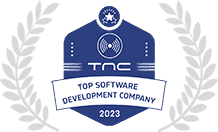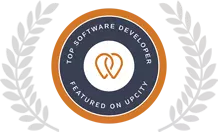Artificial Intelligence (AI) is transforming industries worldwide, creating both excitement and apprehension about the future of the job market. With advanced AI technologies automating tasks that were once considered exclusive to human labor, the question arises: Will machines replace humans in the workforce? In this comprehensive guide, we will explore how AI is reshaping industries, the potential for job displacement, and the new opportunities AI presents.
The Impact of AI on Job Markets: Will Machines Replace Humans?
Artificial Intelligence (AI) has revolutionized industries such as manufacturing, healthcare, finance, and retail. Its ability to perform complex tasks like data analysis, customer service, and even creative work at scale has raised concerns about job displacement. However, AI also creates new opportunities for jobs that require human skills such as creativity, emotional intelligence, and problem-solving.
How AI Is Changing Industries
AI’s influence on various sectors is profound. In industries like manufacturing and logistics, robots and AI-driven machines have replaced repetitive manual labor. In contrast, fields like healthcare and education are experiencing augmentation rather than replacement, where AI tools assist professionals but don’t replace them.
Manufacturing and Automation
In manufacturing, AI-powered machines have optimized production lines, leading to higher efficiency and lower costs. Robots and automated systems now handle tasks like assembly, packing, and quality control. This shift reduces the need for human intervention in repetitive, physical tasks.
- Automation of Repetitive Tasks: Tasks like welding, painting, and packaging are now performed by machines, speeding up production times and reducing errors.
- AI in Quality Control: AI-powered sensors can detect defects in products much faster and more accurately than human workers.
While these innovations increase efficiency, they also reduce the number of jobs available for unskilled labor. However, AI-driven machines still require human oversight, creating roles for technicians and engineers.
Healthcare and AI-Assisted Diagnosis
In healthcare, AI is enhancing rather than replacing jobs. AI systems like IBM Watson Health assist doctors by analyzing medical records and suggesting treatments based on vast datasets. AI is also used for diagnostics, such as identifying tumors in medical images with higher accuracy than human radiologists.
- AI in Diagnostics: AI-powered diagnostic tools help doctors analyze medical data more accurately, improving patient outcomes.
- Patient Monitoring: Wearable devices and AI-driven analytics provide real-time monitoring of patient health, enabling early intervention and personalized care.
Despite these advancements, human doctors and nurses remain essential for tasks requiring empathy, communication, and decision-making. AI augments their abilities, allowing them to focus more on patient care rather than administrative tasks.
AI and Job Displacement: Who’s at Risk?
The concern that AI will replace human jobs is not unfounded. Many tasks, particularly those that are routine and repetitive, are highly susceptible to automation. However, it’s important to note that not all jobs are equally at risk.
Jobs at High Risk of Automation
- Manufacturing Jobs: As previously mentioned, assembly line workers, quality control inspectors, and machine operators face significant risk of being replaced by robots and automated systems.
- Administrative Roles: Data entry clerks, bookkeepers, and payroll processors are increasingly being replaced by AI systems that can perform these tasks faster and more accurately.
- Retail Jobs: Self-checkout systems and AI-powered customer service chatbots are reducing the need for cashiers and retail associates.
According to a report by the World Economic Forum, up to 85 million jobs could be displaced by AI by 2025. However, the report also suggests that 97 million new jobs will emerge due to AI advancements, emphasizing the need for reskilling and upskilling.
Jobs Less Susceptible to Automation
Not all jobs can be easily replaced by AI. Tasks that require creativity, empathy, and complex problem-solving remain firmly in the human domain. For example:
- Healthcare Professionals: Doctors, nurses, and therapists rely on emotional intelligence and interpersonal skills, making them less likely to be replaced by machines.
- Creative Roles: Writers, artists, and musicians utilize creativity and innovation, areas where AI still falls short.
- Leadership Roles: Managers and executives make strategic decisions that require deep understanding of human behavior and organizational dynamics, which are difficult for AI to replicate.
The Rise of AI-Driven Jobs
AI isn’t just displacing jobs—it’s also creating new opportunities. As AI becomes more integrated into businesses, demand for roles in AI development, machine learning, and AI management is growing. This shift is leading to the emergence of new jobs that require a blend of technical and soft skills.
New Roles Created by AI
- AI Specialists: Developing and maintaining AI systems requires a specialized skill set. AI specialists work on designing algorithms, training machine learning models, and refining AI systems to improve their efficiency.
- Data Scientists: AI systems rely on vast amounts of data, and data scientists are responsible for collecting, analyzing, and interpreting this data. Their insights help organizations make data-driven decisions.
- AI Ethics Consultants: As AI becomes more prevalent, ethical concerns surrounding privacy, bias, and decision-making arise. AI ethics consultants advise organizations on how to implement AI responsibly and ensure fairness.
These emerging fields provide lucrative opportunities for individuals willing to invest in learning AI-related skills.
The Importance of Reskilling and Upskilling
As AI continues to reshape job markets, the need for reskilling and upskilling is becoming more apparent. Workers must adapt to the changing landscape by acquiring new skills that complement AI technologies. Fortunately, many industries and governments are recognizing this need and offering reskilling programs to help workers transition to new roles.
Reskilling for the Future
Reskilling involves learning entirely new skills to transition into different roles. For example, a factory worker whose job is automated may reskill as a robotics technician to maintain and operate the machines replacing human labor.
- Technology-Focused Reskilling: Programs focused on coding, machine learning, and AI development can help workers transition into tech-related jobs.
- Soft Skills Development: Jobs requiring interpersonal communication, leadership, and creativity will remain in demand, so reskilling in these areas is crucial.
Upskilling to Stay Competitive
Unlike reskilling, upskilling involves improving existing skills to stay competitive in an AI-driven market. For example, marketing professionals may upskill by learning to use AI-powered analytics tools that enhance their decision-making capabilities.
- AI Literacy: Basic knowledge of AI, data science, and machine learning is becoming essential for workers in various industries.
- Digital Transformation Skills: Understanding how to leverage AI for business efficiency and growth is becoming a critical skill for executives and managers.
AI’s Impact on Job Quality
While much of the conversation around AI focuses on job displacement, it’s also essential to consider how AI affects job quality. AI can automate mundane tasks, allowing workers to focus on more meaningful and creative work. However, the rapid integration of AI can also lead to increased pressure on workers to learn new skills and keep pace with technological changes.
Enhanced Productivity and Efficiency
AI can help workers achieve higher levels of productivity by automating time-consuming tasks. For example:
- Automated Administrative Tasks: AI can handle scheduling, data entry, and other administrative duties, freeing up employees to focus on more strategic tasks.
- Improved Decision-Making: AI-powered analytics tools help workers make data-driven decisions, improving the accuracy and speed of business operations.
Challenges to Job Satisfaction
On the flip side, workers may face challenges as AI takes over more tasks. These challenges include:
- Increased Job Insecurity: Workers in roles vulnerable to automation may experience stress and uncertainty about their job prospects.
- Skill Gaps: Rapid technological advancement can create skill gaps, leading to frustration for workers who feel ill-prepared to adapt.
It’s crucial for businesses to support their workforce through these changes by providing training and ensuring that AI is used to complement rather than replace human labor.
Will Machines Completely Replace Humans?
The idea of machines completely replacing humans in the workforce is a common fear, but it is unlikely that AI will entirely eliminate the need for human workers. Instead, we can expect AI to handle specific tasks, augment human capabilities, and create new opportunities for collaboration between humans and machines.
AI as a Tool, Not a Replacement
AI excels at tasks that require speed, precision, and analysis of large datasets. However, it still struggles with tasks that involve creativity, emotional intelligence, and ethical decision-making. For example:
- Creativity: While AI can generate music or art based on patterns, it lacks the ability to create with emotion or intent like a human artist.
- Emotional Intelligence: AI systems can analyze sentiment and respond to queries, but they cannot replicate the empathy and emotional understanding of human interactions.
Instead of fearing that machines will replace us, we should focus on how AI can complement human efforts and help us work more efficiently. By working alongside AI, we can achieve higher levels of innovation and productivity.
Preparing for the Future of AI in the Workforce
As AI continues to evolve, preparing for the future of work is essential. Businesses, educational institutions, and governments all play a role in ensuring that workers have the skills needed to thrive in an AI-driven economy.
Businesses and AI Adoption
Organizations need to consider how to implement AI technologies in a way that benefits both the company and its employees. This includes:
- Responsible AI Implementation: Ensure that AI systems are designed with ethical considerations in mind, such as avoiding bias and maintaining transparency in decision-making.
- Employee Training: Offer reskilling and upskilling programs to help workers transition into new roles and stay competitive in an AI-driven job market.
Education and AI Literacy
Educational institutions must prioritize AI literacy and digital skills in their curricula to prepare the next generation for an AI-powered workforce. This includes:
- STEM Education: Promoting science, technology, engineering, and math (STEM) education is essential for building a workforce capable of developing and managing AI technologies.
- Critical Thinking and Soft Skills: AI can’t replace human problem-solving and creativity, so nurturing these skills in students will remain crucial.
20 FAQs About AI and Job Markets
- What is AI’s impact on job markets?
AI is transforming industries by automating repetitive tasks and creating new roles that require advanced technical skills. - Will AI replace human jobs?
AI will likely replace some jobs, particularly those that involve repetitive or routine tasks, but it will also create new opportunities. - Which industries are most affected by AI?
Manufacturing, retail, healthcare, finance, and logistics are some of the industries most impacted by AI automation. - What jobs are at risk due to AI?
Jobs like data entry clerks, factory workers, and retail cashiers are at higher risk of being replaced by AI. - Can AI replace creative jobs?
No, creative jobs such as writing, design, and art are less likely to be replaced because AI lacks emotional intelligence and true creativity. - What are the new jobs created by AI?
AI creates jobs like AI specialists, data scientists, and AI ethics consultants. - What is reskilling?
Reskilling involves learning new skills to transition into new job roles that are less susceptible to automation. - How can workers prepare for AI?
Workers can prepare by reskilling in technology-focused areas like coding or upskilling in soft skills such as leadership and communication. - How does AI improve job quality?
AI automates mundane tasks, allowing workers to focus on more meaningful and creative work. - Will machines replace all human jobs?
It’s unlikely that machines will replace all human jobs. Instead, AI will complement human work and create new job opportunities. - Can AI improve business productivity?
Yes, AI can improve productivity by automating tasks, analyzing data, and supporting better decision-making. - What is AI ethics?
AI ethics focuses on the moral implications of AI, including concerns about bias, transparency, and the fair use of technology. - What skills are needed for AI jobs?
Skills such as machine learning, data science, AI development, and problem-solving are essential for AI-related jobs. - How will AI affect healthcare jobs?
AI will assist healthcare professionals by improving diagnostics, automating administrative tasks, and providing personalized patient care. - Is AI adoption increasing?
Yes, AI adoption is growing rapidly across industries, driven by its ability to optimize processes and reduce costs. - What are AI-powered chatbots?
AI chatbots are automated systems that can communicate with users, answer questions, and provide customer support. - Will AI create more jobs than it replaces?
Some reports suggest that AI will create more jobs than it displaces, particularly in tech and AI-related fields. - Can AI replace managers?
AI can support managers by analyzing data and automating reports, but it cannot replace human leadership and strategic decision-making. - What is AI in manufacturing?
AI in manufacturing refers to the use of automation, robotics, and AI-powered tools to optimize production processes. - Is AI dangerous for the job market?
AI can lead to job displacement, but it also creates opportunities for new roles and industries. Adaptation and reskilling are key to mitigating risks.
- Natural Language Processing (NLP): How AI Understands Human Language - October 4, 2024
- AI in Autonomous Vehicles: Driving the Future of Transportation - October 4, 2024
- The Role of AI and Automation in NetSuite: Enhancing Business Efficiency - October 4, 2024




















